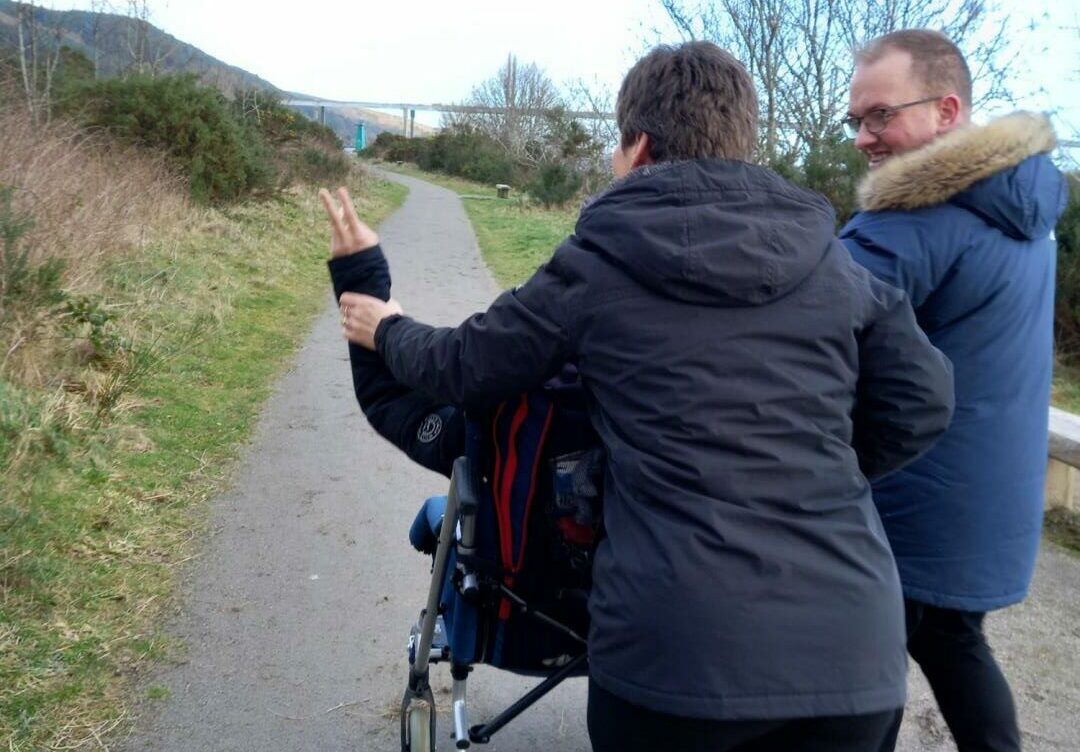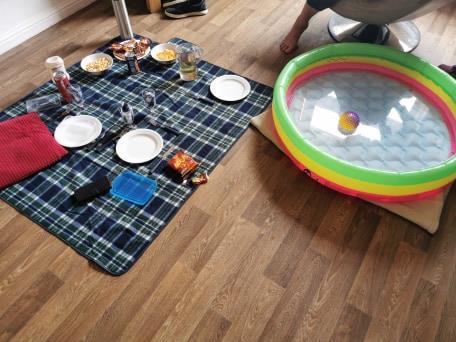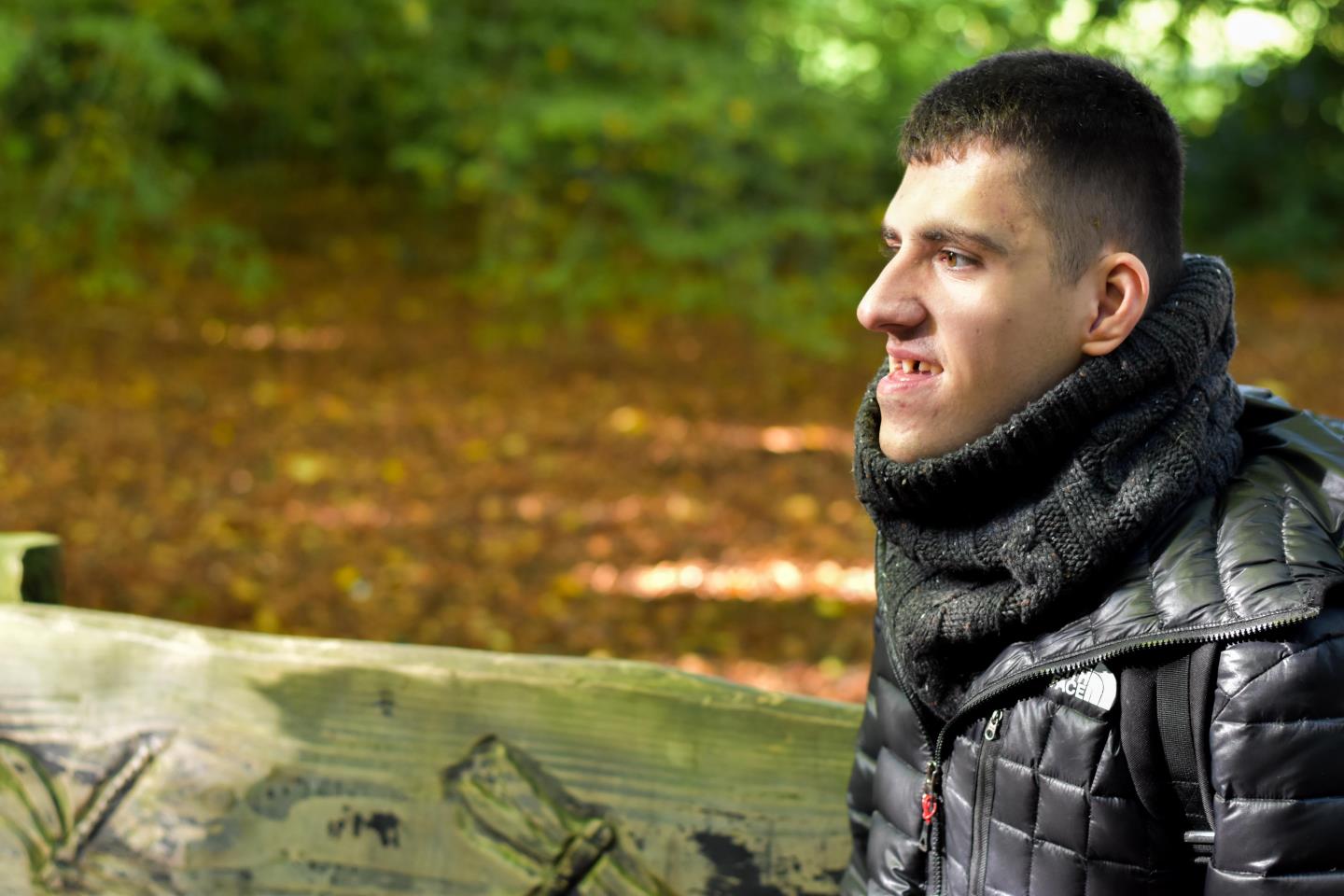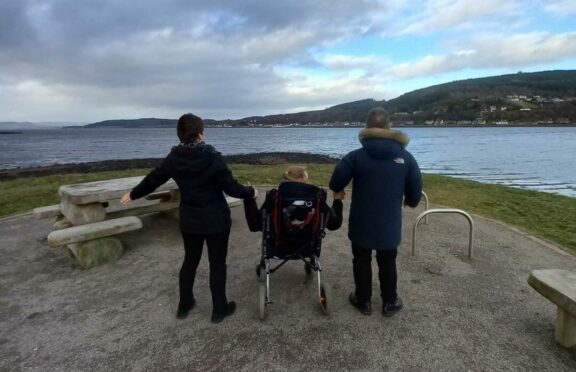Thera (Scotland) is all about helping people with a learning disability in Scotland to live the life they choose – and its dedicated support workers play a vital role in making that happen. Here are three inspiring stories about Thera (Scotland)’s work to brighten up your day.
-
Some Press and Journal online content is funded by outside parties. The revenue from this helps to sustain our independent news gathering. You will always know if you are reading paid-for material as it will be clearly labelled as “Partnership” on the site and on social media channels.
This can take two different forms.
“Presented by”
This means the content has been paid for and produced by the named advertiser.
“In partnership with”
This means the content has been paid for and approved by the named advertiser but written and edited by our own commercial content team.
Unusually compared to similar organisations, Thera is led and managed by people with a learning disability – including Service Quality Director Jordan Allan, who was recently named in the Power 100 2021 list.
This approach helps the organisation to support people with a learning disability in Scotland to not only live independently, but to live the life they choose with person-centred support. As well as practical care, Thera (Scotland) works hard to help its users pursue hobbies, careers and other life goals.
Its support workers are key in helping this happen. Here are three inspiring stories from Thera (Scotland)that show how the right support can help everyone live life to the fullest.
1. “My team and I came up with ideas that they could do every day which matched each individual’s likes and interests.”
Anna, Team Co-ordinator for Thera (Scotland)
Before the pandemic, some of the people with a learning disability in Scotland that Anna supported would spend their days taking part in activities in their communities. This all stopped during the lockdown.
Undeterred, Anna and her team worked hard to come up with creative and inclusive ideas to keep everyone busy.

Anna says: “My team and I came up with ideas that they could do every day which matched each individual’s likes and interests.
“There were workshops for baking and cooking, and arts and crafts. We took them on walks outdoors to enjoy the wildlife, and they now have a sensory room, which they love. For those who enjoy music, we had a tablet to listen to their favourite music.
“Due to the days being busy for everyone, in the evenings it was time to relax with a film.
“There are five people supported so across five evenings, each person would choose their favourite meal to eat that day. Then on Saturday they had a takeaway and then a lovely Sunday lunch to end the week.”
This helped until restrictions ended; now the people Anna supports are getting back out into their communities. She ends: “It is great to see them back in the community, progressing and happy. I still enjoy seeing them in the mornings before they go out and at the weekends.”
2. “We really had to think outside the box and do things that we didn’t expect!”
Shona, Senior Support Worker in Falkirk for Thera (Scotland)
During the pandemic, Shona had to reimagine the support she provided to people with a learning disability in Scotland. Her creativity, passion and dedication shone through in the solutions she found.
Shona says: “We started off small adding in more sensory activities – from making gloop to rice sensory bottles and sensory baking.”
The team also turned to Microsoft Teams for the likes of birthday parties, quizzes, virtual coffee mornings and socialising with family or friends.

But soon, the only limit was Shona and her colleagues’ imaginations. She continues: “A planned garden picnic was expertly transformed into a ‘day at the beach’ indoors by our Team Co-ordinator Jill. When the sun didn’t appear outside, she created a paddling pool, wave sounds, picnic set up, sun hats and sunshades!”
The focus was always on the people who needed support. Shona explains: “We really had to think outside the box and do things that we didn’t expect! I mean just how do you transport a filled ‘pond’ with mud, leaves, fishing nets and plastic fish outside through two rooms, a hallway and a step, without flooding the house? Our community support has been that bit harder, however we did not forget about people.”
This involved a lot of hard work, but it was important for Shona and Thera (Scotland). Shona adds: “Some activities required more planning than others, but was totally worth it!”
3. “The people we support love using the space for so many different things.”
Margaret, Community Support Leader in Dalkeith for Thera (Scotland)
When a group of five people (who all live together) couldn’t access their community sensory facilities during the pandemic, Thera (Scotland) got creative.
Their team of support workers turned a space in their home into their very own sensory room. The people who live there were able to continue enjoy exercising and interacting with sensory equipment, in the safety of their own home. It also featured a new smart TV for virtual video calls, which proved useful not only for socialising but also consultation events and quality assurance checks.

Today, the sensory room remains important to the five individuals. Whether using it individually, as a group or somewhere to enjoy some quiet time, it’s proven to be a beloved addition to their home.
Margaret said: “The team have been amazing at putting the new sensory room together. It was definitely a joint effort but so worth every stressful second when you see just how much the people we support love using the space for so many different things.”
Visit the website to hear more from the staff at Thera on how they support people with a learning disability in Scotland to live they life they choose.
You can also find out more about the support on offer, and opportunities to work with Thera (Scotland) to help them continue delivering their vital, person-centred work in communities across the country.
